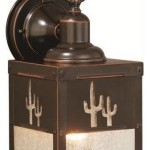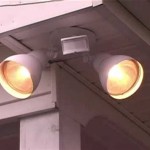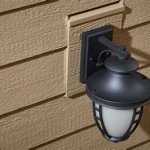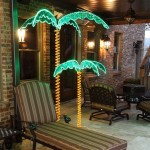Outdoor Lighting Designs: Enhancing Your Exterior with Ambiance and Functionality
Outdoor lighting is an essential aspect of creating a welcoming, safe, and visually appealing outdoor space. Whether you're illuminating pathways for safety or highlighting architectural features for aesthetic appeal, thoughtful lighting designs can transform your exterior into a captivating extension of your home.
Types of Outdoor Lighting
There are various types of outdoor lighting to suit different purposes and areas:
- Path and Step Lights: Illuminate walkways and stairs for safety and prevent accidents.
- Floodlights: Provide broad illumination for larger areas like driveways and patios.
- Recessed Lights: Installed flush with the ground or ceiling for subtle lighting of pathways and decks.
- Pendant Lights: Suspended from above, they add style and ambiance to patios and porches.
- Wall Scones: Mounted on walls to highlight architectural features, provide security, or illuminate entrances.
Essential Principles of Outdoor Lighting Design
Consider these principles when designing your outdoor lighting:
- Purpose: Determine the primary purpose of each light source—whether it's for safety, security, or aesthetics.
- Placement: Position lights strategically to illuminate desired areas without causing glare or light pollution.
- Control: Use timers, sensors, or smart systems to automate lighting and adjust brightness levels based on time or motion.
- Energy Efficiency: Opt for energy-efficient LED lights to reduce energy consumption and operating costs.
- Style: Select fixtures that complement the architectural style and aesthetic of your home's exterior.
- Maintenance: Choose fixtures that are easy to maintain and replace, ensuring optimal lighting performance.
Benefits of Outdoor Lighting
Outdoor lighting offers numerous benefits, including:
- Enhanced Safety: Illuminate pathways, stairs, and entrances to prevent accidents and deter crime.
- Improved Curb Appeal: Highlight architectural features, create visual interest, and increase the value of your home.
- Extended Outdoor Living: Allow you to enjoy your outdoor spaces in the evening hours.
- Energy Savings: Motion sensors or timers can reduce energy consumption by only activating lights when needed.
- Peace of Mind: Provide security by deterring crime and creating a well-lit exterior.
Tips for Creating a Lighting Plan
To create a comprehensive lighting plan for your outdoor space:
- Assess the Area: Identify the areas that require lighting, considering their size, shape, and purpose.
- Determine Lighting Needs: Decide what type of lighting is most suitable for each area, based on its function and aesthetics.
- Sketch a Plan: Create a layout that shows the placement of lights, fixtures, and wiring routes.
- Consider Light Levels: Determine the appropriate level of brightness for different areas to avoid over-illumination or under-illumination.
- Use Layering: Combine different types of lighting to create depth and ambiance, such as path lights for walkways, floodlights for driveways, and accent lights for architectural features.
Conclusion
Outdoor lighting designs can significantly enhance the functionality, safety, and aesthetic appeal of your outdoor space. By following the principles and tips discussed in this article, you can create a customized lighting plan that transforms your exterior into a welcoming, secure, and visually stunning extension of your home.

Outdoor Landscape Lighting Design Tips Ideas Environmental Designs

How To Choose A Landscape Lighting Design That Fits Your Home

Outdoor Landscape Lighting Design Tips Ideas Environmental Designs
Outdoor Lighting Ideas 10 Designs Architecture Design

Bring Life To Architecture With Exterior Lighting Outdoor Installers

13 Outdoor Lighting Tips For A Safe And Inviting Landscape

Lighting Design Considerations For Outdoor Entertaining

Outdoor Lighting Dezeen Showroom

Garden Lighting Design Installation

The Secret To Outdoor Lighting Design Lightstyle Of Tampa Bay







